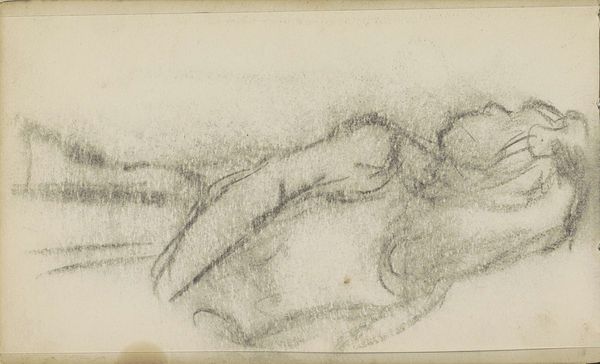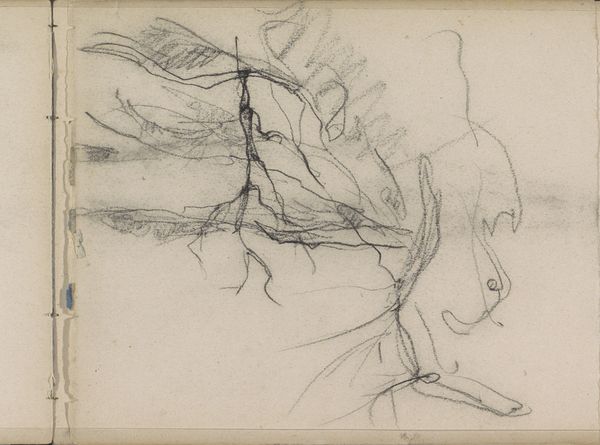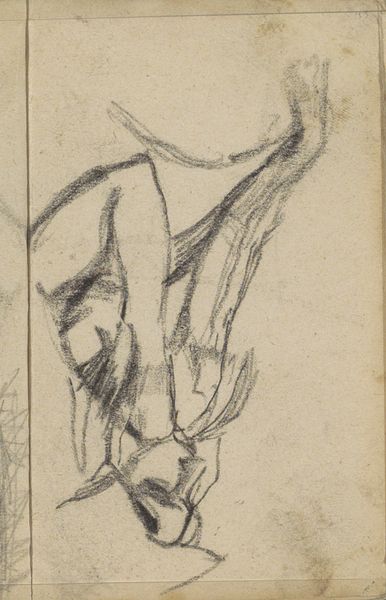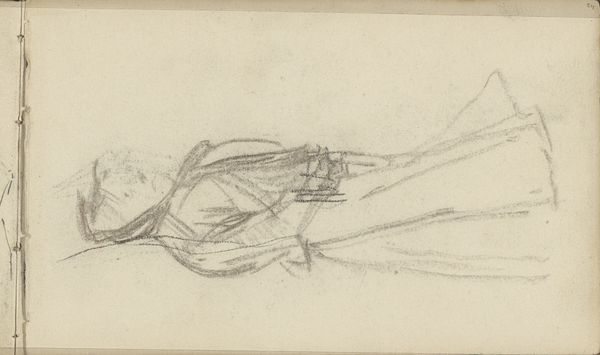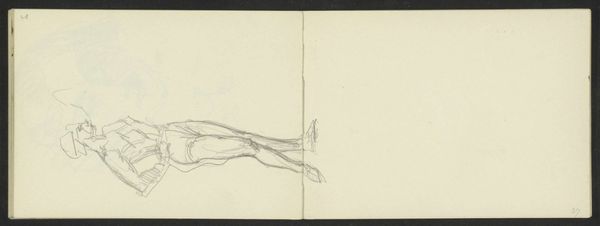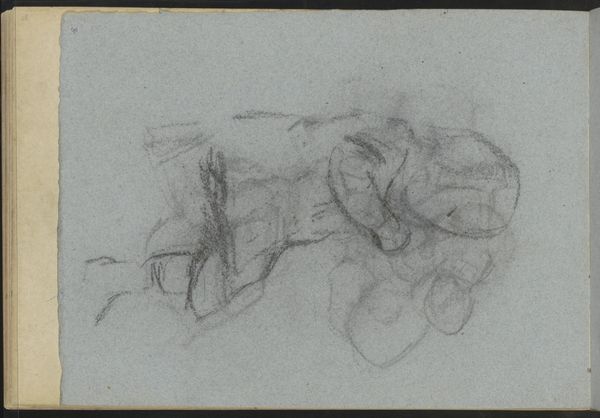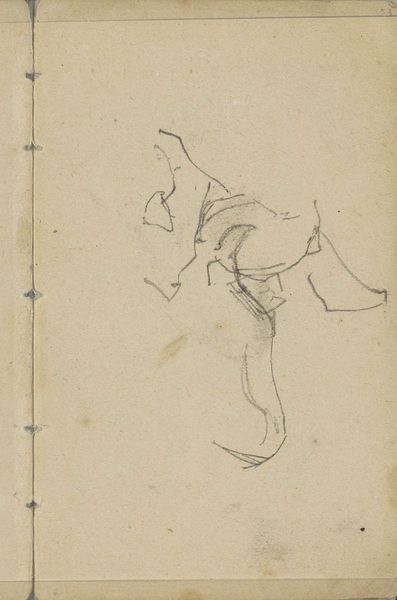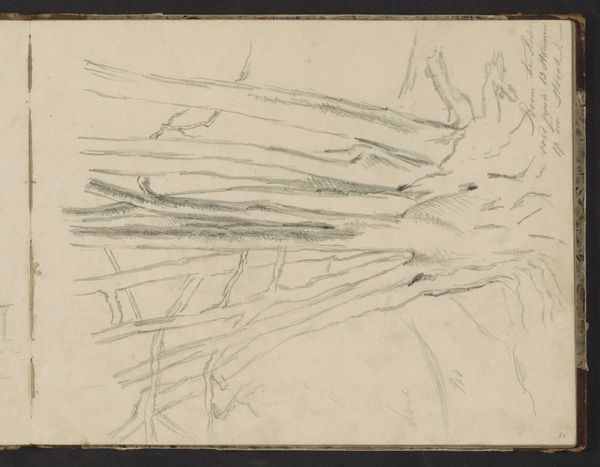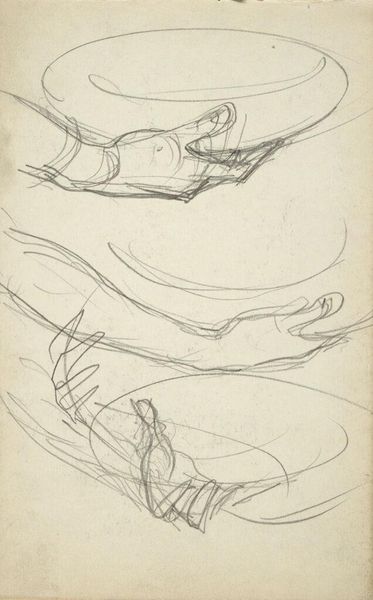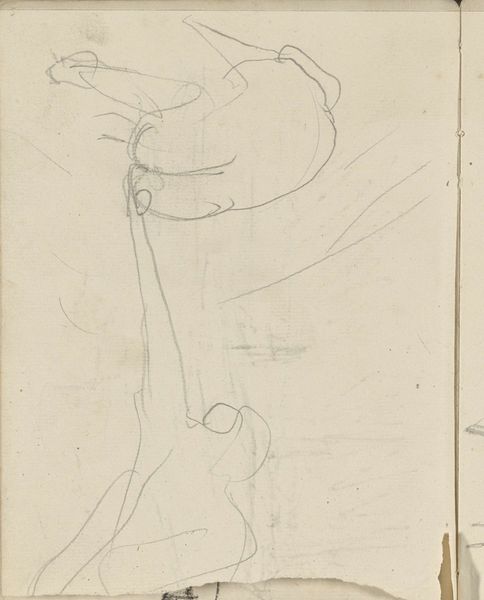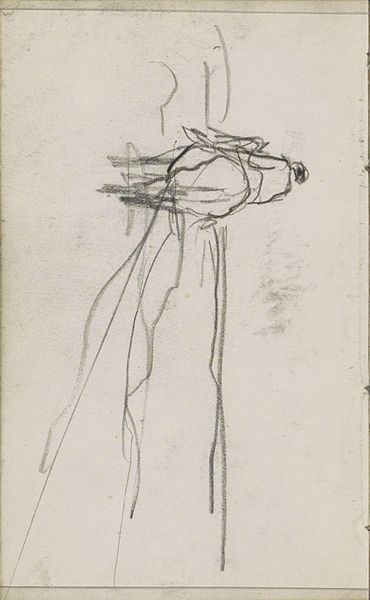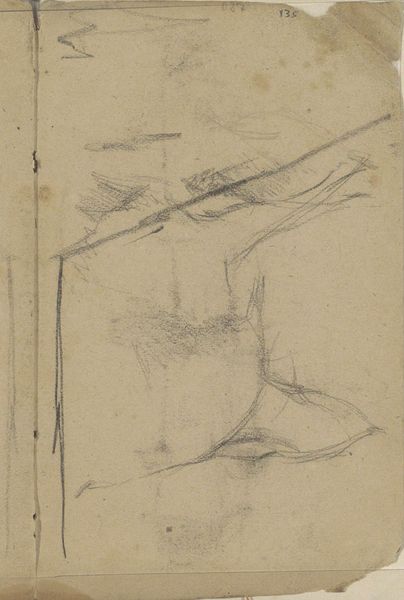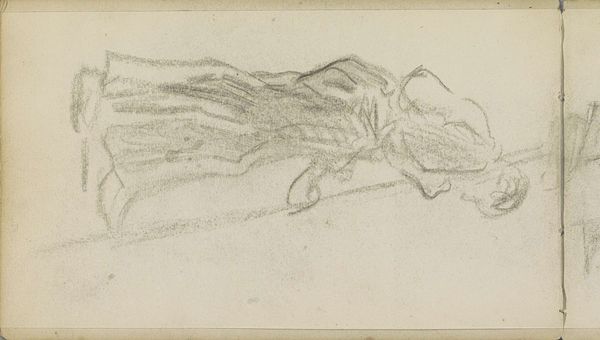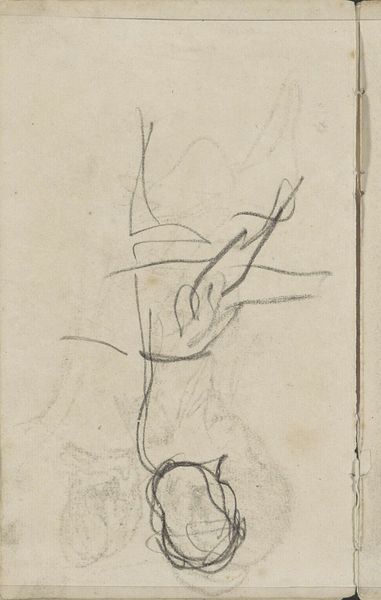
Copyright: Rijks Museum: Open Domain
This simple sketch of a farmer with his tool was made by Jozef Israëls, a Dutch artist known for his depictions of peasant life. Israëls was part of the Hague School, a group of artists who reacted against the dominant Romantic style of painting in the Netherlands. They focused on portraying the everyday lives of ordinary people, particularly those in rural communities, and often in a sympathetic and realistic way. Israëls, in particular, sought to capture the dignity and hardship of the working class, showing the value of their labor. The Rijksmuseum has many drawings and paintings in its collection from this period in the Netherlands. These works provide historians with valuable insights into the social and economic conditions of the time, as well as the artistic movements that sought to challenge the status quo and question the institutional role of art. By studying these works, we can better understand the complex interplay between art, society, and the politics of representation.
Comments
No comments
Be the first to comment and join the conversation on the ultimate creative platform.
